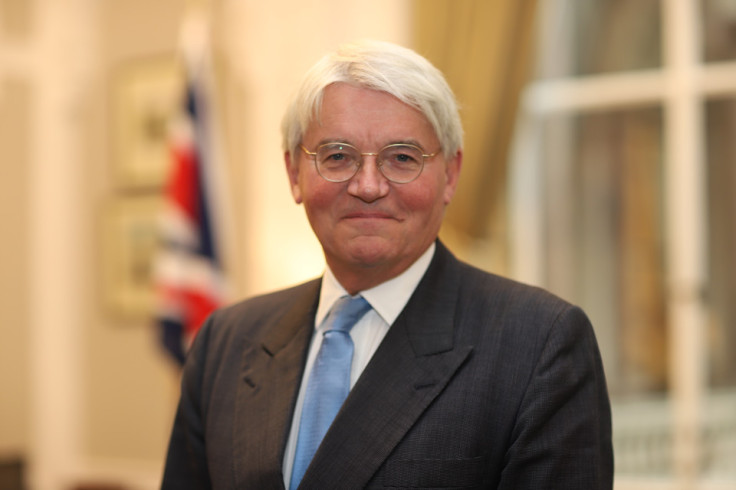International Development Minister launches new 'UK Development Brand'
The International Development Secretary Andrew Mitchell has delivered a key speech at Chatham House outlining the future of Britain's approach to international development.

What role can Britain play in the world today to help reduce global poverty and further progress towards global prosperity and economic security?
With inflation persisting at high levels, Britain faces a cost of living crisis at home. Whilst financial pressures mount on consumers and businesses across the nation, International Development Minister Andrew Mitchell has delivered a speech to the think tank Chatham House explaining Britain's approach to international development.
Specifically, this entails what the UK can do to "reduce poverty, tackle climate change and reinvigorate progress towards the UN Sustainable Development Goals." In his speech, Mitchell stated the government's commitment to communicate to British citizens that "international development is core to our own national interest as well as the right thing to do." Mitchell also highlighted Britain's "historic commitment" to the poorest citizens around the world.
Moreover, Mitchell implied that responsible statehood entails upholding a commitment to furthering the development of the poorest nations. He stated the intention of the government to "reinvigorate Britain's development leadership," which according to him has been "missed" amongst Britain's "friends and allies".
After first acknowledging the suffering of those in Sudan, Mitchell set out seven key priorities that reflect the core of Britain's international development objectives. They include the following:
- Firstly, creating reform in the global financial system to empower nations to tackle their own development challenges and address the challenges of climate change.
- Secondly, increasing the fairness of global tax systems. Mitchell referred to OECD (Organisation for Economic Co-Operation and Development) estimations that in the range of $100 to $240 billion is lost due to multinational tax avoidance.
- Thirdly, "delivering clean, green infrastructure and investment". Mitchell explained the importance of private investors, as well as the need to make progress by COP28 at the end of this year.
- Fourthly, increasing food security globally. Mitchell explained the obscenity that children starve to death in the 21st century. Accordingly, he pledged humanitarian relief to the value of £1,000 million, highlighting the need to ensure "future resilience" to the impact of climate change.
- Fifth on the list of priorities is advocating for "open science", using Britain's status as a research and science superpower.
- In sixth place is "preventing the next global health crisis". In his speech, Mitchell highlighted the importance of being prepared for pandemics, and placing Britain "at the centre of the global health agenda."
- Lastly, the government aim to put "women and girls at the heart of all development", with an emphasis on understanding the experiences of women and girls who live in poverty and conflict. Mitchell announced the "SCALE" programme intended to progress 6 million girls into school over a four-year period. SCALE stands for "scaling, access and learning and education."
The 'UK Development Brand'
A key part of this approach is the "UK International Development brand", which the government say reflects the "breadth of the UK's leadership and our partnership approach." Crucially, the partnership approach is broader than aid, aiming to achieve international development through mutually beneficial relationships with other nations based on the development of shared objectives.
In other words, the brand signals a change in focus from development aid to "long-term partnerships" grounded in mutual respect between governments.
The new approach will take advantage of the "global footprint" of the Foreign, Commonwealth & Development Office to develop these partnerships. Back in 2020, the government announced that the former Department for International Development would be merged with the Foreign Office, bringing development and diplomacy under the policy scope of a single department.
The government also explained how the brand is intended to signal the importance of international development to British citizens at home. Hence, it seems that politicians are mindful to try and justify a focus on international development to British citizens. Arguably, this is not surprising from a Conservative government if one looks at polling figures on public attitudes towards international development.
Back in 2020, the government reduced the foreign aid budget from 0.7 to 0.5 per cent of gross national income (GNI). The move was controversial at the time amongst political circles, with criticism coming from former Prime Ministers Tony Blair and David Cameron.
However, when asked "Do you think the government are right or wrong to reduce the amount spent on overseas aid?", YouGov polls showed that 66 per cent of the general population supported the cut in overseas aid spending, with just 18 per cent opposing it. Amongst Conservative voters, a mere 3 per cent said the government were wrong to reduce aid spending, with 92 per cent saying they were right to do so.
© Copyright IBTimes 2024. All rights reserved.





